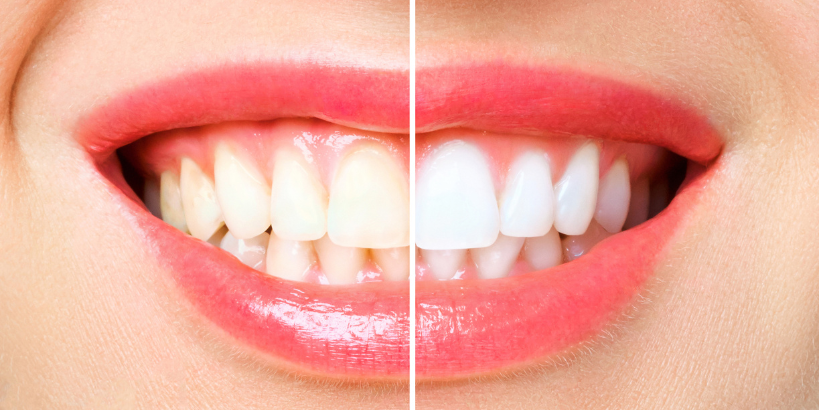4765 Carmel Mountain Rd., Suite 203, San Diego, CA 92130
Is Teeth Whitening Safe? What You Need to Know

Is Teeth Whitening Safe? What You Need to Know
Teeth whitening has become one of the most popular cosmetic dental procedures. People love the idea of a brighter smile but often wonder, “Is teeth whitening safe?” The good news is that, when done correctly, teeth whitening is generally safe. You must understand that clearing agents might be unsafe for your gums, and over-usage can lead to teeth sensitivity. In this blog, we will discuss the safety of teeth whitening, the risks involved, and how to ensure your whitening experience is both effective and safe.
What Is Teeth Whitening?
Teeth whitening is a cosmetic dental procedure that dentists use to eliminate stains and dark spots. It involves using various products, such as whitening strips, gels, or professional treatments, to lighten the color of your teeth. These products usually contain hydrogen or carbamide peroxide, which helps break down stains and make your teeth appear whiter.
How Teeth Whitening Works
Teeth whitening products penetrate the tooth enamel and break down the molecules responsible for staining. The active ingredients, like hydrogen peroxide, release oxygen, which reacts with the stains on the surface of the teeth. This process helps lighten the color of your teeth.
There are two main types of teeth whitening options: professional teeth whitening in San Diego by a dentist and over-the-counter products you can use at home. Professional whitening treatments often provide faster, more dramatic results using more potent whitening agents under controlled conditions.
Is Teeth Whitening Safe?
Teeth whitening is safe for most people when used as directed. Professional treatments performed by a dentist are generally the safest and most effective. These treatments are tailored to your needs and are closely monitored to minimize risk. Over-the-counter products like whitening strips and gels are safe but may cause sensitivity or irritation if misused.
It’s important to note that teeth whitening is not recommended for everyone. Pregnant women, nursing mothers, and young children should avoid whitening treatments unless advised otherwise by a dentist. People with sensitive teeth, gum disease, or existing dental issues should consult a dentist before using whitening products.
Potential Risks of Teeth Whitening At Home
While teeth whitening is generally safe, there are some potential risks and side effects that you should be aware of:
1. Tooth Sensitivity:
This usually happens after using whitening products that contain hydrogen peroxide. Sensitivity can cause discomfort when eating or drinking hot, cold, or sweet foods. Fortunately, this sensitivity is often temporary and fades once you stop using the whitening product.
2. Gum Irritation:
If whitening products come into contact with your gums, they can cause irritation or a mild burn. This can happen if you overuse whitening strips or if the whitening gel spills onto your gums. Using a custom tray provided by a dentist can help prevent this issue.
3. Uneven Results:
Teeth whitening products may not work evenly on all types of stains. Some stains, such as those caused by certain medications or dental injuries, may not respond well to whitening treatments. A dentist may recommend alternative treatments, like veneers or crowns, for more even results.
4. Enamel Damage:
Overusing whitening products, especially at-home kits, can damage tooth enamel. Enamel is the protective layer of the tooth; if it’s compromised, it can lead to tooth sensitivity and decay. This is why following the recommended guidelines and not overusing teeth whitening products are essential.
How to Use Whitening Products Safely
To minimize the risks associated with teeth whitening, consider the following tips:
- Consult Your Dentist: Before starting any whitening treatment, it’s best to consult your dentist. A dentist can assess your oral health and recommend the safest and most effective whitening option.
- Follow Instructions Carefully: Always follow the instructions for teeth whitening products, whether professional treatments or over-the-counter products. Overuse can lead to side effects.
- Limit Use of Whitening Products: To avoid enamel damage and tooth sensitivity, limit how often you use whitening products. Your dentist will provide guidance on the appropriate frequency.
- Avoid Whitening If You Have Dental Issues: If you have gum disease, cavities, or worn-down enamel, it’s essential to address these issues before whitening. Whitening products can exacerbate these problems.
- Consider Professional Whitening: Professional whitening treatments are often safer and more effective because a dentist closely monitors them. Dentists can tailor treatments to suit your specific needs and minimize risks.
Whitening Is Safe with Proper Care
Teeth whitening is generally safe when done correctly and under professional supervision. It can significantly improve the appearance of your smile, boosting your confidence. However, to ensure safety and avoid potential risks, following the recommended guidelines and consulting with your dentist before using any whitening products is crucial.
Using whitening products correctly and taking necessary precautions allows you to enjoy a brighter smile without compromising your dental health. Always contact your dentist for advice if you experience any discomfort or concerns.

